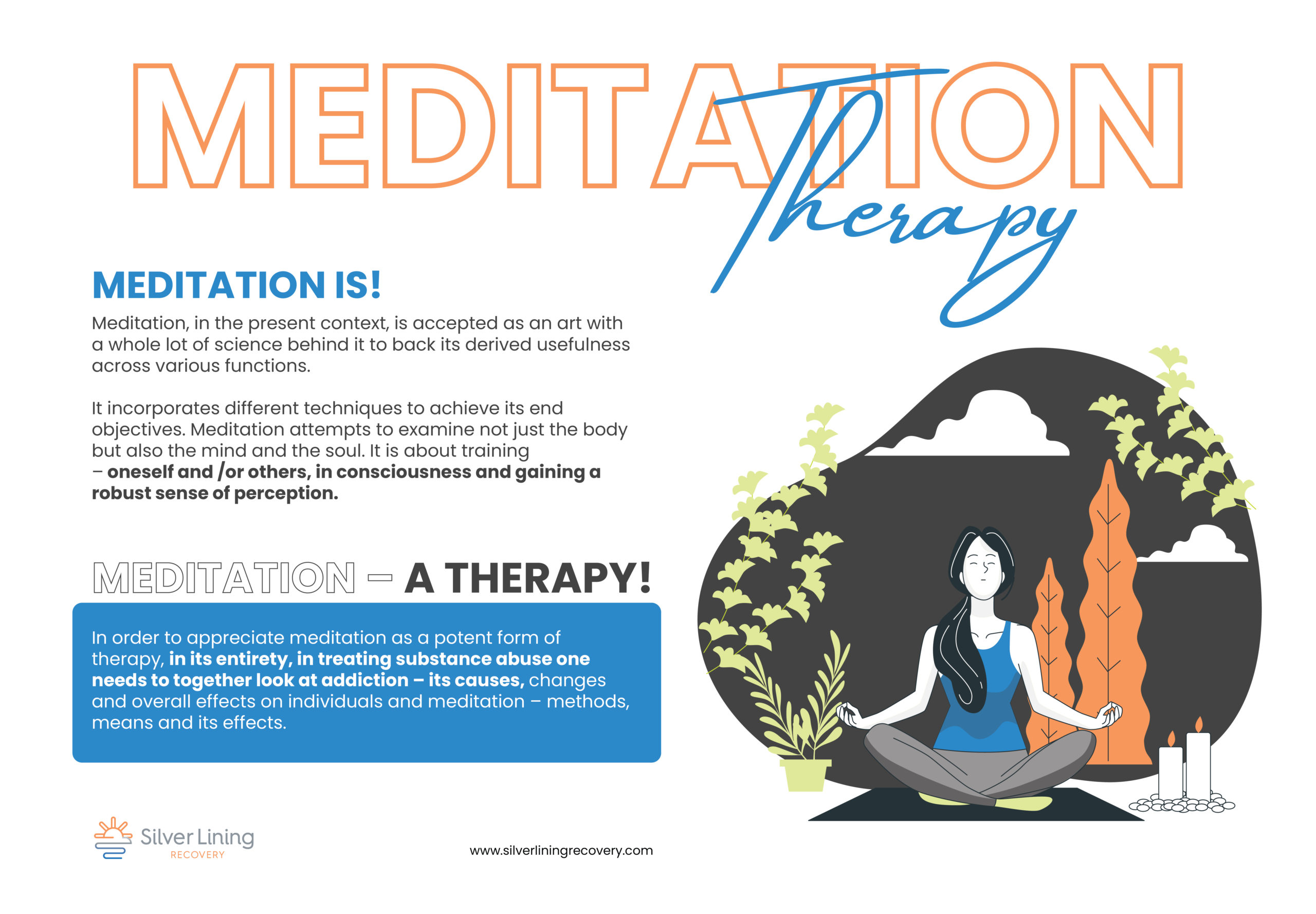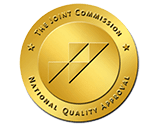

Meditative therapy has been used for centuries to heal and preserve the human race’s mental, physical, and spiritual well-being. It is a safe and natural way to heal the body, mind, and soul. Today meditation is often used for its therapeutic value addition and regular medical treatment programs to help heal anxiety disorders arising due to various reasons, including substance abuse, stress, separation, etc.

What is addiction?
Addiction is a neurotic brain disease characterized by its lack of refraining despite negative repercussions and is often accompanied by changes in behavioral controls, obsessive cravings, and irregularities in emotional response.
Causes of addiction
Some of the primary known causes of addiction are:
– Lack of adequate skills to deal with stress
– Underlying anxiety or depression
– Negative thinking
– Family genes
What happens in addiction?
Typically, when one is addicted to the use (or misuse) of a substance, the repeated action can capture the pleasure and reward circuits in the brain and hook the person into wanting more of it. Addiction invariably can also send the emotional danger-alert settings into hyperactivity, making one feel anxious and stressed when not using the substance. Moreover, frequent use of the substance can harm the critical decision-making point at the front of the brain. Stress then induces anxiety, and anxiety can be an intense emotion, especially when one is in its grip. Worldwide, there is 01 individual in every 14 who suffers from some kind of anxiety disorder!
Why meditation?
Meditation is a skill in which the person uses different methods – like mindfulness, visualization, noting or converging their mind on a specific object, activity like breathing or thought – to tutor attention and consciousness, and achieve mental clarity, emotional calmness, and stable state of balance.
Understanding Meditation therapy for freedom from stress, anxiety and addiction
Meditation therapy for anxiety disorder directly affects the brain’s neurotransmitters, which have been shown to reduce stress and anxiety. Further, meditation therapy is known to release endorphins in the system, which are chemicals in the brain that reduce pain and induce feelings of pleasure.
Unlike the traditional form of treatment, meditation therapy for anti-depression or anti-anxiety:
• Encourages the individual to examine the internal reason for the turmoil and unrest in their physical body from the inside to arrive at the root cause of the issue at hand.
• Helps individuals to observe each reflection and impression without judgment and eventually learn to understand them better.
• Assists in being mindful of their actions in the present and therefore supports in letting go of the past that was or the future that will be. This encourages individuals to be aware and conscious of the now and brings in more accountability in every action that the individual undertakes.
Outcomes of Meditation Therapy
As we continue with the meditation therapy for addiction, we begin to notice patterns more distinctly, and perceiving patterns enables us to step aside or out of them. The practice helps release tension in both the body and mind. It induces relaxation, relieves stress, and helps to lift the mood. Anxiety disorder meditation is a powerful tool that helps with increasing blood flow, improves focus, provides clarity, encourages better sleep habits, calms nerves, and enhances natural detoxification.
Meditation therapy for anxiety disorders and addiction helps individuals learn to cope with cravings and feelings of anxiety by changing the relationship between the root cause and the response it produces.
Meditation Therapy in California
If you are looking for a meditation center in California to help yourself or your loved one become free of any addiction or anxiety, contact Silver Lining. We have specially crafted programs to cater to individuals or group requests pertaining to (but not restricted to) meditation for stress, anxiety, depression and /or meditation therapy for addiction.
Group Meditation
At Silver Lining, you can exercise meditation therapy for addiction individually, on your own, or in a group setting where you will gain mutual moral support in continuing the practice. It can take some time to get comfortable with your own thoughts; it is common to get distracted and for the process to take some time. The support of a group will help you overcome these obstacles.






